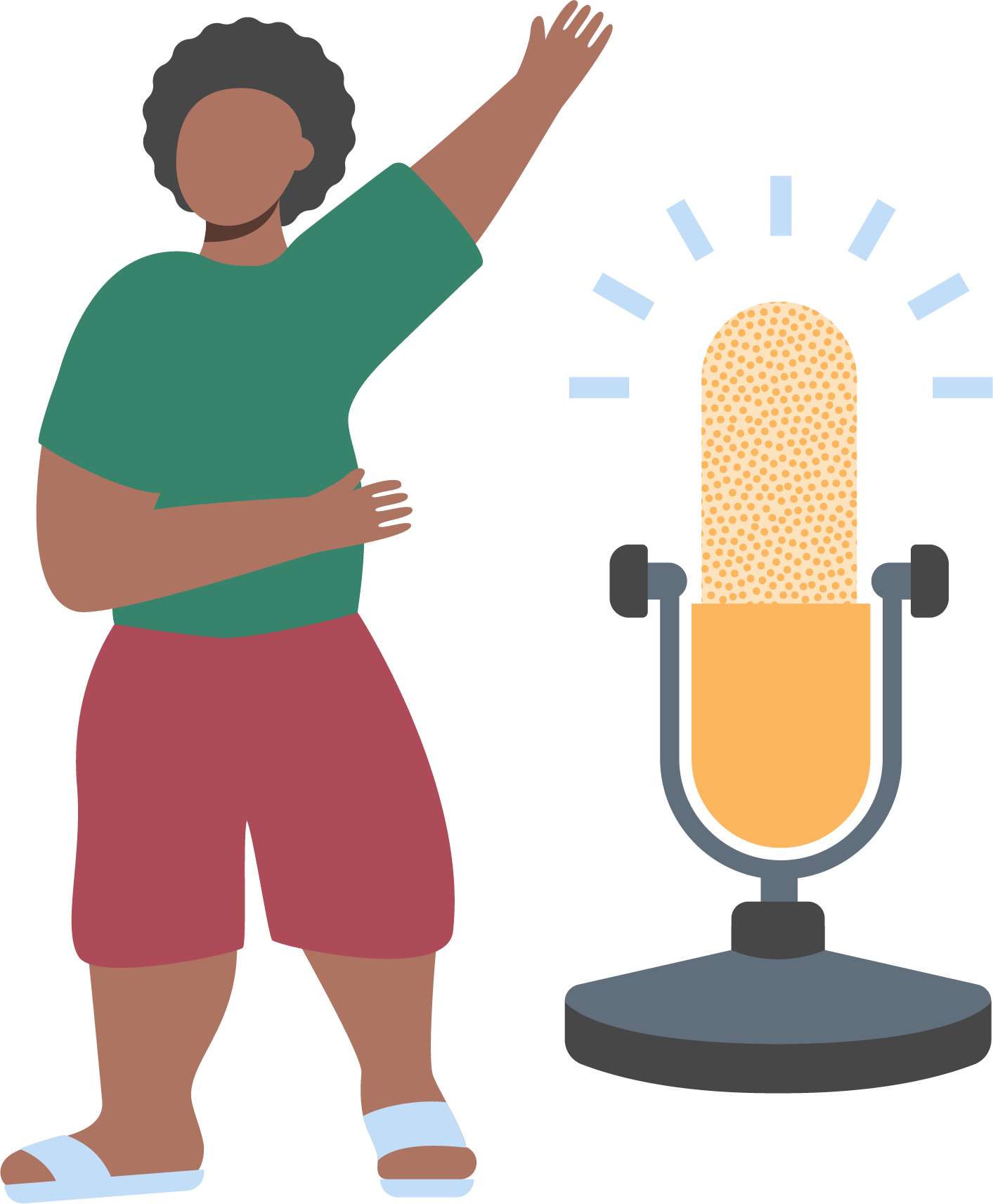Dando Voz empowers survivors to speak out
09.21.23
Category: Crisis Response, Dando Voz, Legal Advocacy, Therapy
Type: Blog
09.21.23
Category: Crisis Response, Dando Voz, Legal Advocacy, Therapy
Type: Blog
Disclosing sexual assault and seeking help requires survivors to communicate details about a traumatic experience, a path that many find too distressing and overwhelming to consider. National data suggests as many as three-quarters of all sexual assaults are never reported.
 The same factors that both make someone more likely to experience sexual assault also mean they are less likely to disclose sexual assault. Those who cause harm understand and count on this dynamic to continue perpetration.
The same factors that both make someone more likely to experience sexual assault also mean they are less likely to disclose sexual assault. Those who cause harm understand and count on this dynamic to continue perpetration.
It is believed that underreporting may be higher for survivors who identify as Latinx* or Hispanic, though data surrounding the incidence of sexual assault for BIPOC survivors is lacking.
What we know for sure is that survivors and families whose primary language is Spanish, and/or who have migrated to King County from other countries, face specific challenges to healing and justice.
Part of those challenges is being understood, linguistically and culturally. “The legal system requires precision in storytelling, and, without a solid grounding in trauma reactions, it tends to penalize survivors who cannot recall exact, linear details of an assault,” said Claudia Godina, Bilingual Legal Advocacy Supervisor at KCSARC.
Now imagine you have to tell that precise story in Spanish, through an interpreter, while grappling with the emotional impact of trauma.
Language isn’t the only challenge for Latinx survivors
Language is just one of potentially several significant barriers that contribute to the escalated vulnerability and lack of response to Latinx survivors. Another obstacle is fear of government or institutional systems, such as law enforcement, child protective services or hospitals. That fear is based on systemic racism and oppression within our systems of power, which have historically inflicted harm. Hesitation to seek help can be especially acute if the survivor or their family members are undocumented. Fear of deportation, loss of job and income to sustain the family, and even removal of children from their parents or family caregivers if they draw too much attention or scrutiny to their situation are all considerations survivors in these circumstances must weigh against their own well-being.
Within many Latinx communities, there remains a stubborn cultural stigma surrounding mental health that prevents some survivors from reaching out for treatment. It is considered something of a character flaw to have a mental health condition, and there is a strong belief that treatment is only for the weak. That sense of shame can prevent Latinx survivors from seeking care that could help them recover from the trauma effects of sexual assault.
Ingrained understandings and values around gender roles and behaviors — what it means to be masculine or feminine, and the emphasis placed on virginity or purity, especially for women and girls — also play a role in silencing survivors from Latinx cultures.
How we help
Understanding and responding to the unique needs and concerns of Latinx sexual assault survivors is an area of specialization and growth at KCSARC.
“It’s important to meet survivors where they are,” said Agustina Eiff, director of Clinical Services at KCSARC. “For example, a survivor raised in a culture that emphasizes putting the needs of the family ahead of the needs of the individual logically concludes that reporting sexual abuse will cause the family trouble, which may be perceived as worsening the situation for everyone. They have to trust the person who is helping them truly understands the situation they’re in.”
KCSARC’s partnerships with other independent community-based nonprofits such as El Centro de la Raza have led to more calls and referrals in recent years, but we’ve also found that new clients are reaching out after hearing from a friend or someone in their community who KCSARC has helped. “These strong partnerships and word-of-mouth referrals from survivors themselves tell us we are becoming a trusted resource within the Latinx community,” said Agustina.
KCSARC’s Dando Voz (Giving Voice) program was formalized in 2007 and is one of KCSARC’s fastest-growing. It includes 19 bilingual and bicultural staff members, including therapists, legal advocates and client care specialists. Along with advocacy and therapy, survivors and their families who need legal representation can be connected with local attorneys through a partnership program called Abriendo Puertas (Opening Doors).
Learn more about Dando Voz and our services for Latinx survivors
*Did you know? KCSARC uses the term Latinx instead of Hispanic because it is a more inclusive and gender-neutral term that respects the diversity of gender identities within the Latin American and Spanish-speaking community. Additionally, Latinx acknowledges the broader cultural and ethnic identities beyond just Spanish-speaking heritage, recognizing indigenous, Afro-Latinx, and other heritages that may not be captured by the term Hispanic.
We also recognize there is no universal agreement on the use of this term, and that those who share this identity are not a homogenous ethnic group. We continue with humility to learn and adapt our language choices.